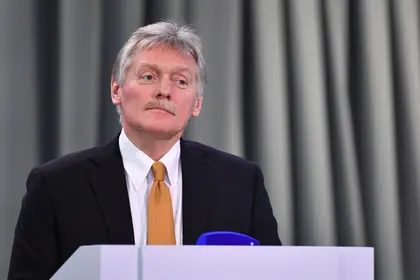Russia’s most effective weapons against Ukraine have been Donald Trump, Victor Orban, and leaders in rich countries who have been timid or pulled their punches. Fortunately on April 20, Congress passed a desperately needed $61-billion military aid package despite opposition by Putin Republicans who delayed approval for months. That dickering was disastrous for Ukrainians. Thousands of their soldiers died or were wounded, and Russia gained another 5 per cent of the country.
But now, military help is on its way and won’t be delayed, according to military officials, and it will arrive before Russia’s offensive in June. The US is also sending non-combat military advisors to Kyiv, for the first time, and Europeans are bolstering their armies and expediting military aid shipments to shore up Ukrainian efforts. Finally, Western governments have stopped debating about whether to drag their tanks or jets out of arsenals or out of storage for Kyiv.
JOIN US ON TELEGRAM
Follow our coverage of the war on the @Kyivpost_official.
Ukraine has plenty of tanks and is about to receive dozens of F16 fighter jets before June. Given obstructions since 2022, it’s remarkable that Ukraine has defied all odds and may even be poised to drive Russia out of Ukraine, experts believe. Moscow’s military is mediocre, and can be defeated, but only if the West goes all in. “Russia cannot defeat Ukraine or the West – and will likely lose – if the West mobilizes its resources to resist the Kremlin,” wrote the ISW, or Institute for the Study of War.

US Companies Lead Foreign Tax Contributions to Russia, Paying Over $1 Billion
The ISW chart compares the GDP of the “West” – which includes NATO, non-NATO European Union states, and Asian allies such as Japan, South Korea, and Taiwan – with the GDP of Russia and its autocratic allies.
“Existing and latent capability dwarfs that of Russia,” it concluded. “The combined gross domestic product (GDP) of NATO countries, non-NATO European Union states, and our Asian allies is over $63 trillion. The Russian GDP is on the close order of $1.9 trillion. Iran and North Korea add little in terms of materiel support. China is enabling Russia, but it is not mobilized on behalf of Russia and is unlikely to do so. If we lean in and surge, Russia loses.”
Now Ukraine faces two more deadlines – in June and November – that will determine the outcome of this war. Russia’s counter-offensive begins in June which will test Ukraine’s strength, and the US Presidential election occurs in November which will decide whether America will stand behind Ukraine or bail. To date, Kyiv’s setbacks have been mostly due to delays, but there have also been victories.
Kyiv has damaged Russia’s economy, navy, and military forces. Outnumbered and outgunned, Ukrainians still control 80 per cent of their gigantic country. Thousands of drones damage Russian infrastructure, trade, shipping, and oil production. Hundreds of thousands of Russian soldiers have been killed or wounded, one-third of its Black Sea naval fleet has been sunk, and its air force and tank battalions decimated.
In return, however, Russia has pummelled Ukraine with aerial attacks which have succeeded only because Western nations haven’t provided air defense systems, or an “iron dome,” for Ukrainian cities. Kyiv and Washington asked Israel for help to protect its skies many months ago, but Israel’s Benjamin Netanyahu (a one-time pal of Putin’s) rejected their pleas despite public support to do so. Estonia’s leader called this a double-standard. Zelensky called out the hypocrisy of that situation this week. “The whole world saw that Israel was not alone in this defense – the threat in the sky was also being eliminated by its allies,” Zelensky said. “And when Ukraine says that its allies should not turn a blind eye to Russian missiles and drones, it means action is needed – a bold one.”
Despite the unlevel playing field, Lieutenant General (Ret.) Ben Hodges, former Commander of US Army Europe, says that Russia cannot win. “Russian forces do not have the capability. The worst-case scenario for Ukraine is for Western powers to keep doing what we’re doing” by slow-walking weaponry and military assistance to Kyiv. He explained Russia’s inadequacies in an interview in Al Jazeera: Since the fall of Avdiivka in Ukraine’s east on February 17, its forces have “oozed” forward, swallowing several villages, as Ukrainian forces have performed tactical retreats. “Here we are in April, and [the Russians] are oozing out. Why is that? I think it’s because that’s the best the Russians can do. They do not have the capability to knock Ukraine out of the war.”
Russia has limited mobility on the ground and lacks the equipment and expertise to move forward, he said last month. “That’s why I feel fairly confident that the mission for [Ukrainian] general Oleksandr Syrsky for the next several months is to stabilize this as much as he can to buy time for Ukraine to grow the size of the army, to rebuild the defense industry of Ukraine, as well as give us time to find more ammunition for them. I think of 2024 as a year of industrial competition. So the army has got to buy time.”

America’s $61-billion military package includes massive amounts of ammunition and more (ATACMS) long-range missiles which were effectively used by Ukraine against Russia in October 2023. (In March, the Czech President announced one year’s worth of ammo from arsenals around the world were also on their way to Ukraine.) These procurements will allow its military to bomb troops and operations behind enemy lines. While all this is good news, concerns still remain that hesitancy, and Russian disinformation, won’t abate and may once more succeed in impeding Western military assistance.
America and Germany have hesitated to go “all in”, said Hodge. He believes the US Administration is “unduly scared” because “they think that if Ukraine liberates Crimea, that will lead to the collapse of the regime [of Russian President Vladimir Putin], or that Putin will think he has no choice but to use a nuclear weapon to prevent that from happening. I think those are two false, unfounded fears. I hope it does lead to the collapse of the Putin regime. It’s not something we should fear. It’s something we should plan.”
Germany has been unwilling to provide Ukraine with military aid all along, and has withheld its state-of-art Taurus missiles with a 310-mile range, he added. “That is 99 percent because [Olaf Scholz] is convinced that if [Donald] Trump is [US] president, then he will withdraw the nuclear shield from Europe and turn his back on NATO.” His reasoning is that Germany, unlike France and the UK, would be left without a nuclear deterrent against Russia.
Fortunately, France recently joined Poland and the Czech Republic by calling on European nations to prepare for “escalation” and possibly “boots on the ground” in Ukraine. Others see Russia as weak. Last week, Feng Yujun, a respected Russian expert in China, made several bold predictions about the situation. He said Russia will be forced to withdraw from all of Ukraine and Crimea, Putin may be replaced, and some republics will leave the Russian Federation. He said Ukraine will win because its leadership and military are superior, it has broad international support, and its people have exceptional resolve and technical expertise. He doesn’t foresee a Korea-type ceasefire solution because “Kyiv has demonstrated Moscow’s” military incompetence and Putin would have no bargaining power.
But the war won’t be a cake walk and Moscow’s June offensive aims to seize the rest of the Donbas region as well as Kharkiv, Ukraine’s second largest city. It already stages mass bombing attacks there to drive people out of the city. Fortunately, new long-range missiles will be able to effectively retaliate or mitigate such attacks. And Ukraine’s new mobilization law aims to conscript 300,000 new troops, bringing its force up to 1.2 million. It is offering incentives to join such as free home down payments for front-line soldiers and a $400,000 life insurance policy. They’re also offering sizeable bonuses to those who destroy, damage, or capture Russian weapons.
The new American military aid marks a turning point, and signifies that American leaders in both parties realize that a War in Europe, and NATO involvement, is inevitable unless Ukraine wins. Last week, Republican House Speaker Mike Johnson and others were informed that the combat situation in Ukraine was so dire that it was a make-or-break moment in the war. CIA Director William Burns told them that, without more US aid, Ukraine “could lose on the battlefield by the end of 2024.”
Ukraine fights on behalf of the world and remains on a precipice, reliant on its peoples’ courage as well as charity from fickle democracies. But reality is that we’re all on that precipice. Putin lights fires all over the world in his hybrid global challenge to the West. Without ongoing support, Russia will gain territory, Ukraine could fold, Europe will be next, then the world economy will tank. Holding up aid, to score petty political points or out of fear, is not only irresponsible and reckless. It is downright immoral.
The views expressed in this opinion article are the author’s and not necessarily those of Kyiv Post.
Reprinted from [email protected] - Diane Francis on America and the World
See the original here.
You can also highlight the text and press Ctrl + Enter







